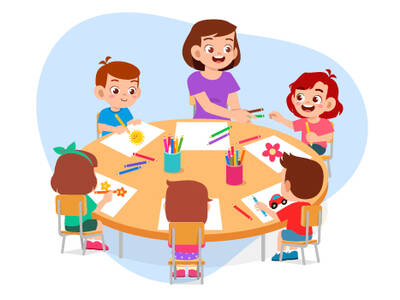
Bulgaria has ratified a number of international conventions, as well as agreements under the international human rights law. The most significant among them In the field of gender equality, which map out the future strategic framework of the policy in this area, are the Beijing Declaration and Platform for Action on Women's Rights, adopted at the Fourth UN Conference on Women, the Convention on the Elimination of All Forms of Discrimination against Women*, together with the Committee on the Elimination of Discrimination against Women (CEDAW), which monitors the implementation of the Convention and the Optional Protocol** to the Convention on the Elimination of All Forms of Discrimination against Women.
A significant part of the national legislation in the country related to equal opportunities for women and men has been adopted in the process of its harmonization with the acquis communautaire. In this process, national norms have been brought into line with European Union primary and secondary legislation, in particular in the field of equal treatment for women and men, equal opportunities for all and the fight against all forms of gender-based violence.
*The Convention was ratified in 1981.
**The Optional Protocol was ratified in 2006.
Gender Equality Act
The state policy on gender equality in Bulgaria is regulated by a special Gender Equality Act (Promulgated SG No. 33 of April 26, 2016).
For the purposes of this Act, gender equality means “equal rights and obligations, equal opportunities for realization and overcoming obstacles in all areas of public life, as women and men are free to develop their personal abilities and make choices without the limitations of the social role of one's gender. " (Additional provisions).
The state policy on gender equality is based on the principles of:
1. equal opportunities for women and men in all spheres of public, economic and political life;
2. equal access of women and men to all resources in society;
3. equal treatment of women and men and preventing gender-based discrimination and violence;
4. balanced representation of women and men in all decision-making bodies;
5. overcoming gender stereotypes.
According to the National Strategy for the Promotion of Gender Equality (2016-2020), the country has a comprehensive institutional mechanism for preventing and combating discrimination, and gender is one of the nineteen features for which the Protection against Discrimination Act provides protection. "The state strives to protect the political and social rights of women and men, promotes equality in the field of employment, pay and social security, professional qualifications and career development, reconciling family and professional life and the right and use of parental leave. The right of access to national and universal cultural values, the right to the development of personal culture, the freedom of artistic, scientific and technical creativity, inventive, copyright and related rights are guaranteed, ”the Strategy states.
Protection against Discrimination Act
The Protection against Discrimination Act (promulgated, SG No. 86/2003) largely complies with the acquis communautaire in the field of equal treatment of women and men.
It regulates equality in terms of employment and the exercise of the right to work, opportunities for training and professional qualification, equal pay for equal work. (Section I. Protection in the exercise of the right to work). In the field of education and training, the Law stipulates:
Art. 35 (1) The persons, carrying out training and education, as well as the compilers of textbooks and teaching aids shall be obliged to provide information and to apply methods of training and education in a way, aimed at overcoming stereotypes about the role of women and men in all spheres of social and family life.
(2) Kindergartens, schools and higher schools shall include in their educational programs and plans training on the problems of gender equality of women.
A number of strategic and operational documents have also contributed to the elimination of the differences between women and men and the prevention of discrimination in Bulgaria, such as: the National Program for Prevention and Protection against Domestic Violence, the National Strategy for Roma Integration, the National Program for Prevention and Combating Trafficking, etc.
Related Articles
Early childhood is a period crucial for children's physical, cognitive, emotional and personal development. At this age the…
In Bulgaria there have been fragmented attempts to work on the topic of gender equality at kindergartens. Thematic classes…
The training modules were first applied between September 2019 and January 2020 with an experimental group of children at…
The practical activities confirmed how spontaneous and authentic children are at this age. Prejudices and gender stereotypes…









